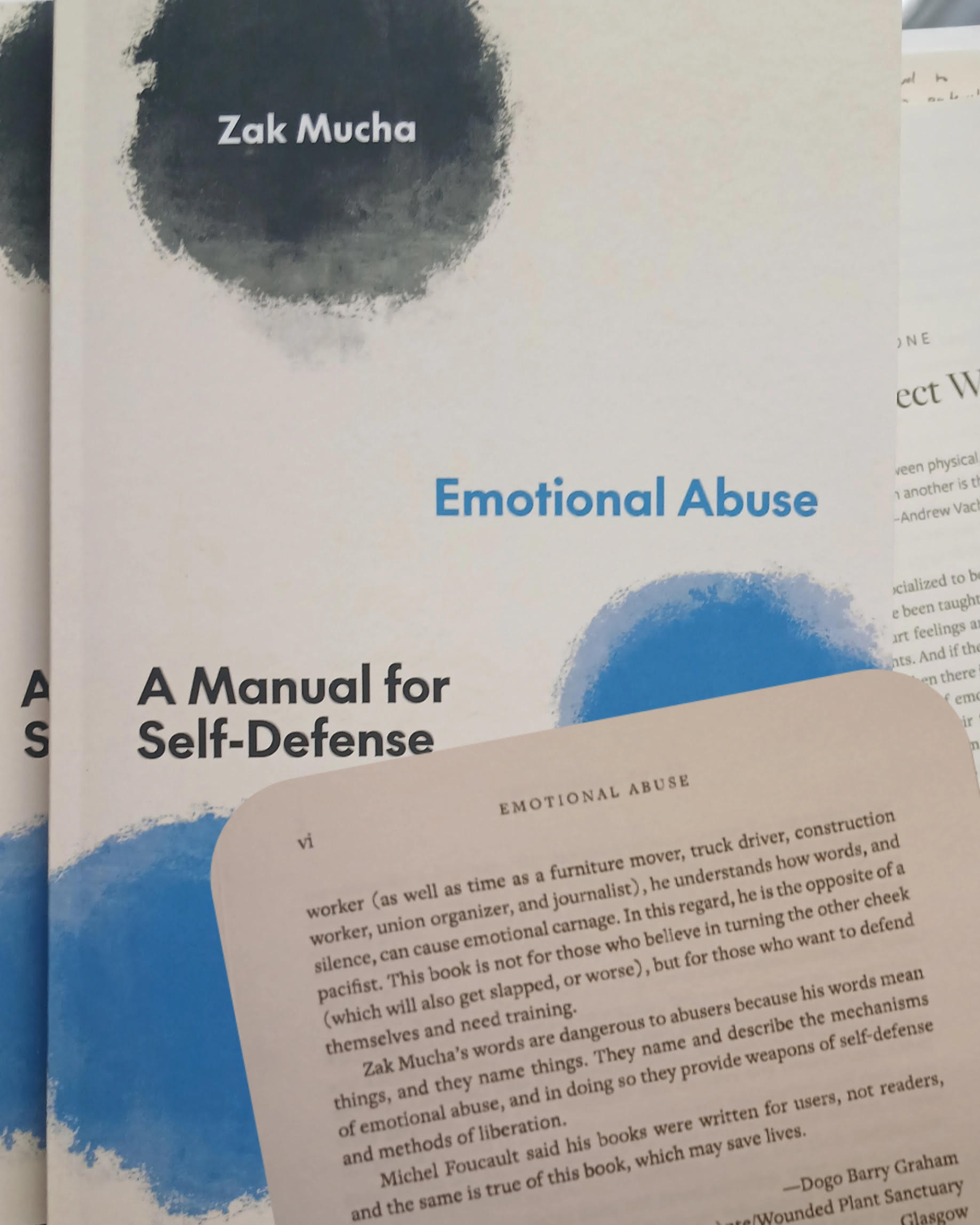The Perfect Weapon (pt. 1) from Emotional Abuse: A Manual for Self-Defense
There is no real difference between physical, sexual, and emotional abuse.
All that distinguishes one from another is the abuser’s choice of weapon.
—Andrew Vachss
We have been socialized to believe emotional abuse is not serious. We have been taught emotional abuse itself is nothing more than hurt feelings and there is no real evidence other than the victim’s complaints. And if the only evidence is the victim’s complaints, we wrongly justify, then there is no way to verify whether a person was actually hurt. The victim of emotional abuse is dismissed precisely because they cannot “prove” their feelings. Emotional abuse creates a vicious dynamic wherein the victim is taught their feelings do not count and any pain suffered is, somehow, their own fault.
Like any other abuse, emotional abuse is about power. Whoever can define reality has the ultimate power. In emotional abuse, the aggressor attempts to define reality with statements such as You’re too sensitive and I couldn’t help it. You made me mad. Each statement is an attempt to shape how another person perceives reality.
Emotional abuse teaches us to blame ourselves for being hurt. We learn to redefine ourselves in the hope that we do not get attacked again. In redefining ourselves, we retreat to new, constricted boundaries—where we can go, what we can say, and how we “should” feel. We do this in an effort to avoid pain. When we cannot escape emotional pain, we try to tell ourselves it’s not that bad. We minimize our own pain, criticizing ourselves for being hurt. We imitate and incorporate the aggressor’s accusations, repeating the same things they have told us about ourselves and the world. The abuser will present layers of excuses and justifications while the unstated truth continues to be I will continue doing this as long as there is no cost.
The aggressors justify their actions: If someone is hurt, they must be overreacting. They must be too sensitive. They didn’t get the joke. As a society, we remain willing to accept the abuser’s minimizations. It is easier to blame the victim. Righteous indignation and efforts to stop the abuser in cases of physical and sexual abuse do not exist when the abuse is emotional or psychological. Instead, we accept the abuser’s excuses: I didn’t say that. You misunderstood me. I was angry. You made me mad. I have a right to say what I want. I couldn’t help myself. You’re too sensitive. It was a joke—let’s forget it and start over. I was just being sarcastic . . .
This is why emotional abuse is a weapon equal to, if not more damaging than, physical or sexual abuse: We have been taught to accept the abuse. Emotional abuse becomes the perfect weapon when the abuser’s excuses are accepted by the victim and by the community. The perfect weapon is one no one sees. The perfect weapon is one the aggressor can hand over to the victim to use against their own self. The perfect weapon is self-perpetuating. The perfect weapon leaves the victim believing they deserved the attack.

